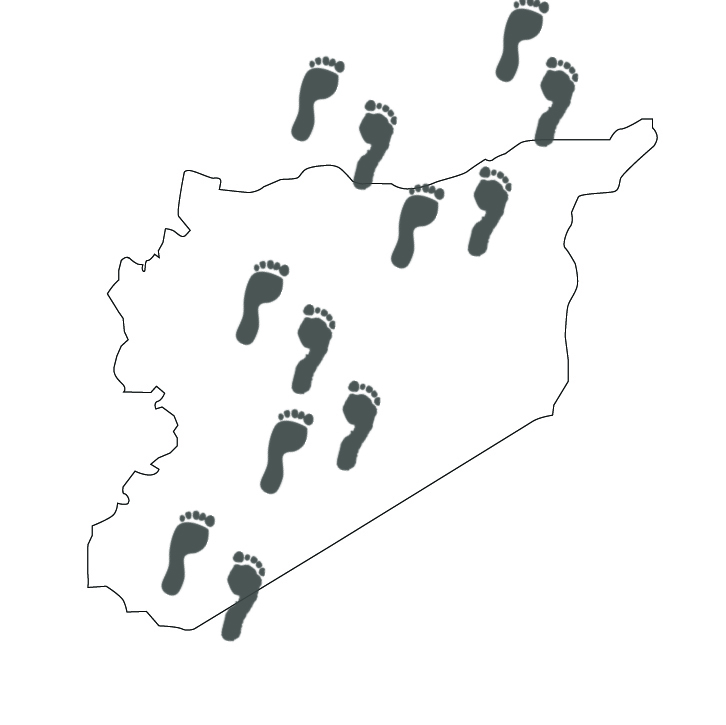March 2011—a peaceful protest in Darra, Syria calling for the release of 15 children arrested for political graffiti turned violent after the Syrian Army opened fire on the crowd. Four were killed.
February 2013—President Assad refused to step down from power, causing further unrest throughout the country and straining national relations. 70,000 civilians were estimated dead.
September 2015—a photo of Aylan Kurdi shook the media world as the reality of Syrian civilians fleeing their country is put into perspective. The image of Kurdi was of his body washed up on a Turkish beach after his family attempted to escape by boat. He was three years old.
Dec. 13, 2016—rebels begin to lose control of Aleppo, many begin to create farewell videos, their survival indefinite, their fates uncertain. As reported by CNN, 400,000 civilians were estimated dead, 4.81 million having fled Syria and 6.8 million displaced within the country.
Dec. 22, 2016—the Syrian government had now completely overtaken the city, sealing the defeat of Aleppo’s rebel regime.
I am no expert, nor am I exempt from the guilt of silence. Even in this truth, a change must be made. We must begin to educate, to seek knowledge of that which we don’t understand. So before you close your eyes, open them. Before you turn your back, stand with them. Ignorance cannot, and will not, be solved by ignorance.
In March of 2011, I was but a 15-year-old woman who had been reading headlines of the recent uprisings in Syria. Confused, I sought clarity. For the next five years I found myself immersed by the enormity of it all, the information intertwined within a giant web of complexity.
In this time, I have shed tears of frustration. Wrapping my mind around the reality of that which so many refugees experienced, I was, and still am, conflicted. How did this spiral so far? What is the weight that these events will carry throughout history? A few days ago, I was given a small taste of the process that Syrian refugees endure, and the opportunity to further educate myself on the matter.
St. James Cathedral hosted the Syrian Refugee Simulation on Saturday, Jan. 21. With participants from a variety of areas present, Seattle U’s Global Awareness Program (GAP), the organization of which I am a part, was asked to join the event.
While the simulation was underway, I volunteered as a registrar officer, the individual responsible for registering refugees into the camp. Participants would start at my station, then move to other stations, such as the supply table and the health center.
Though the simulation was impactful, the heart of the event was in the discussion. As questions were asked, it wasn’t until one of the guest speakers shared her story that the gravity of it all came rushing toward me.
She was a Jordanian woman who had been working as an aide for refugees on the island of Lesbos. She explained that refugees would pay smugglers to leave the island on boats, despite the danger of this mode of transportation. She spoke of how she tried to deter many from travelling by boat, encouraging them to instead use the ferries.
Her story then took a dark turn. One night, at 3 a.m., she and those with whom she worked heard screaming coming from the traveling the boats. One had capsized, leaving dozens of refugees stranded with newspaper-filled life jackets. She spent that evening, until the early hours of the morning pulling people out of the water, some alive, some not.
I’ll never forget when she spoke of the horror of seeing a dead child. I’ll never forget how, again and again, she saved the lives of others. I’ll never forget how she needs to keep a bottle of antidepressants always at hand, popping a pill whenever she feels an episode approaching. I’ll never forget the inspiration that she brings me. That despite all that she has seen, she still returns to the refugees. Her story is their story. Her reality is their reality. Her fight is their fight.
Never again the Holocaust.
Never again the Cambodian Genocide.
Never again the Rwandan Genocide.
Never again the Syrian Civil War.
For those who read this, and for those who don’t understand, try. I not only encourage, but urge you to go beyond the boundaries of your made reality. There is no death worse than that of silence, and it is one in which we have all partaken.
Before we say “never again,” or create another hashtag, let’s face our equals and bring what should matter, matter. In a world that is ever more polarized, one turned head is another turned dead.
Shelby may be reached at
entertainment@su-spectator.com






